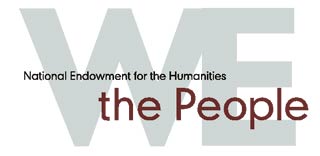On this page:
Welcome
Why Should I Use This Site?
Difficult decisions in response to dilemmas faced by real people have the potential to affect the lives of generations to come. In The Coming of the American Revolution you will learn the facts relating to the events leading up to the American Revolution—and more. Through introductory essays written in the present tense and letters, diary entries, news accounts, and public proceedings drawn from our collection, history from the distant past will be brought to the immediacy of today.
As you explore this site, you will assume the role of detective, developing the crucial skills of gathering evidence and building arguments. Primary sources will help you appreciate the similarities and differences between your lives and those of your predecessors. Comparing documents will help you identify such phenomena as ideological bias, creative license, and propaganda; discover a more accurate account of an event; fill gaps in the historic record; trace the movement of ideas across populations, time, and geographic space; and comprehend differing points of view about one event.
More important, by engaging with primary sources through your critical and creative thinking skills, you will come to understand that documents are not simply illustrations or information conduits but important means to discovery. You will come to appreciate as well that history recounts a process—a series of human decisions that could have been made otherwise and, thus, could have produced different outcomes. In short, history doesn’t happen—people make history.
How to Use This Site
Overview
In this website, The Coming of the American Revolution, you will encounter primary sources from our collection that relate the struggles, fears and dilemmas facing ordinary people as they emerged from a cluster of competing colonies to an independent nation. Here, you will develop the skills you need to understand the motives and actions of the determined individuals who founded this country. This website is flexible enough to be used in class or for working on your own independent research projects.
Here’s what you’ll find as you begin to explore:
Topic List
The basic site is organized into fifteen Topics that are accessible through the timeline navigation on the Homepage or through the menu. Each Topic is introduced with a background essay and contains at least six digitized documents which you can read in the original print or handwriting or in a transcription—a typed version.
When you read the selected primary source documents from the MHS collection, you will notice that the style of writing common during the 18th century differs considerably what we use today. We have developed several Questions to Consider for each document. Keep these alongside the document you are reading in order to aid your understanding. For those interested in additional research, there are Further Exploration questions associated with each document that are designed to immerse you deeper into the drama of the events.
Woven throughout each of the topical pages are excerpts from the diaries of John Rowe (1715—1787), a prominent Boston merchant who expressed allegiance to the Patriot cause but did not go so far as to endorse independence. His diaries span the years 1764—1779 and offer many valuable observations about people, events, and daily life in Boston.
Document Analysis Worksheet
To aid you in your investigation, we have included a Document Analysis Worksheet. Use this reference tool as you dive into the manuscripts contained in this site. You are making sense of events from the past, relying on a wide assortment of resources to uncover specific clues and background information. You’ll be amazed at what your research turns up!
Resources
The
Feedback
If you have used this site either on your own or with your class, we would love to hear from you. Please take our



